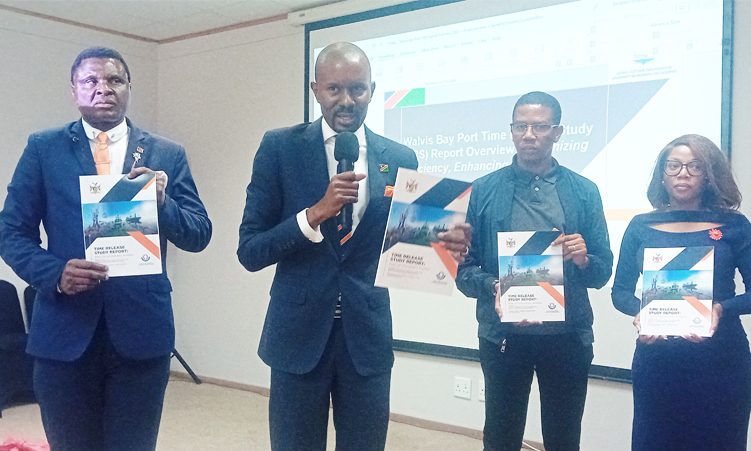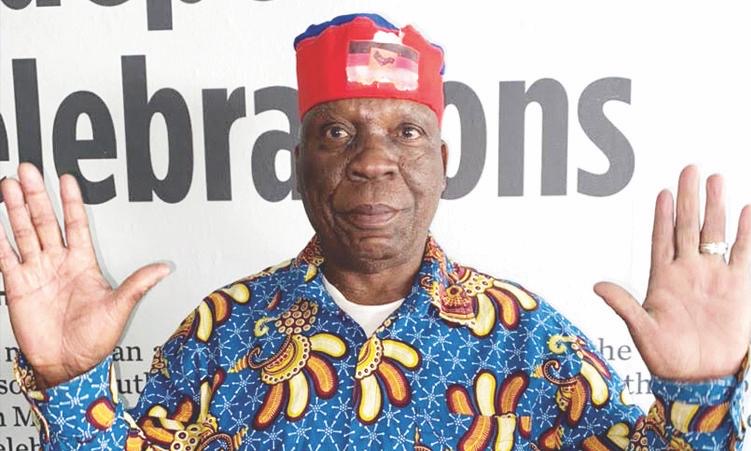Namibia Revenue Agency (Namra) commissioner Sam Shivute has stressed the importance of jointly implementing recommendations by key border agencies to ensure the realisation of Namibia’s national development goals.
He was speaking at the launch of a time-release study report at Walvis Bay on Friday.
The report is a key tool to transform Namibia into a national logistics hub, within the Southern African Development Community (SADC) region and was carried out at the port of Walvis Bay between February and July this year.
“We would want to position Namibia as the regional transport and logistics hub, connecting the SADC to the international market. You need to be able to tell people how long it will take for their goods to be cleared at your point of entry.
“This study is not perception or assumption-based, it is based on data. It is scientific. Members of the team held hands and made sure these findings are real.
“Namibia is already on the global map, especially with the discovery of oil and green hydrogen.
“People will come if we are able to facilitate trade and provide a service that enhances legitimate trade. You cannot have many border agencies at the border. Collaborate and work together. People will not speak about individual inconvenience when something goes wrong somewhere.
“They will say Namibia is inefficient,” Shivute said.
The report also aims to measure the actual time required for the release and/or clearance of goods, from the time of arrival until the physical release of the consignment, thus identifying bottlenecks in the clearance process.
Some of the study’s findings indicated that the minimum amount of time consignments spend at the port of Walvis Bay are seven days, 20 hours, and 46 minutes, with a maximum of 96 days, three hours, and six minutes.
The average time is 19 days, seven hours, and 32 minutes.
Some root causes and bottlenecks that negatively impact the time to clear cargo from the port include the limited use of automated systems for customs data world functionalities, delays in electronic fund transfers from commercial banks to the reserve bank, the under-utilisation of the self-assessment concept and pre-clearance, a lack of coordination between agencies, the under-utilisation of the central cargo examination area in the port and a lack of electronic central permit insurance systems.
The study was funded by the United Kingdom’s ‘His Majesty Revenue and Customs’ and supported by the World Customs Organisation (WCO) Accelerate Trade Facilitation programme.
Programme technical assistance head Donia Hammami congratulated the working group, saying this success has inspired other countries.
“This is not only important for Namibia, but for southern Africa as a whole. I would like to congratulate the team on the significant achievement. While we have witnessed the start of similar time-release studies in many countries, they are more often not finalised.
“It is not easy. There are many challenges to analyse and root causes to be identified, but as a team with a lot of hard work and dedication, you have overcome those challenges and produced the expected results and output,” she said.
Namibia is currently helping to train other countries on the implementation of their own time-release studies.
Stay informed with The Namibian – your source for credible journalism. Get in-depth reporting and opinions for
only N$85 a month. Invest in journalism, invest in democracy –
Subscribe Now!







